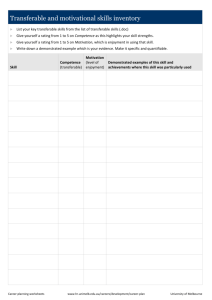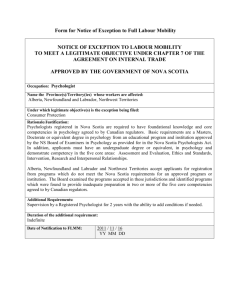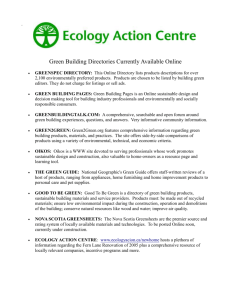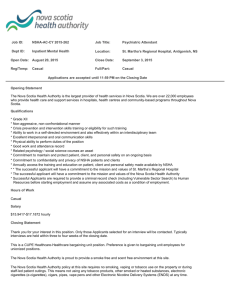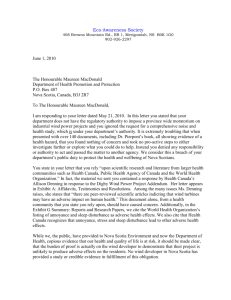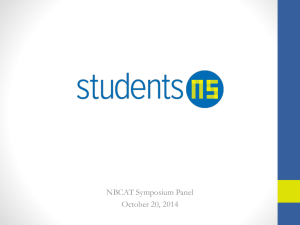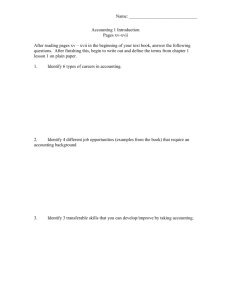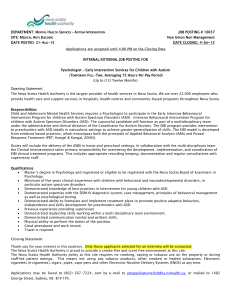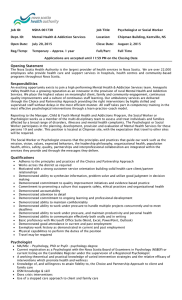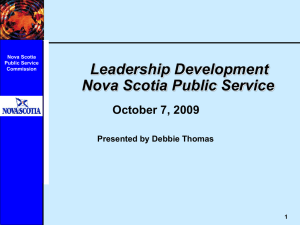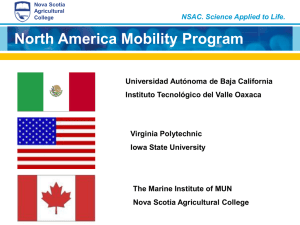Transferable Skills Inventory
advertisement
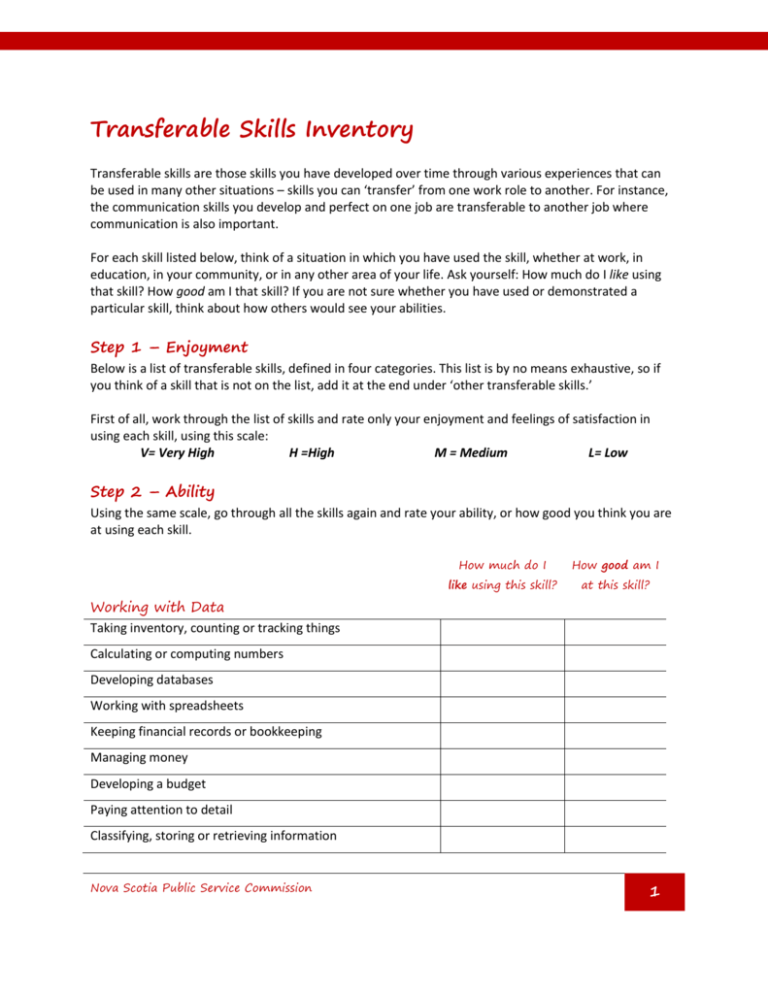
Transferable Skills Inventory Transferable skills are those skills you have developed over time through various experiences that can be used in many other situations – skills you can ‘transfer’ from one work role to another. For instance, the communication skills you develop and perfect on one job are transferable to another job where communication is also important. For each skill listed below, think of a situation in which you have used the skill, whether at work, in education, in your community, or in any other area of your life. Ask yourself: How much do I like using that skill? How good am I that skill? If you are not sure whether you have used or demonstrated a particular skill, think about how others would see your abilities. Step 1 – Enjoyment Below is a list of transferable skills, defined in four categories. This list is by no means exhaustive, so if you think of a skill that is not on the list, add it at the end under ‘other transferable skills.’ First of all, work through the list of skills and rate only your enjoyment and feelings of satisfaction in using each skill, using this scale: V= Very High H =High M = Medium L= Low Step 2 – Ability Using the same scale, go through all the skills again and rate your ability, or how good you think you are at using each skill. How much do I How good am I like using this skill? at this skill? Working with Data Taking inventory, counting or tracking things Calculating or computing numbers Developing databases Working with spreadsheets Keeping financial records or bookkeeping Managing money Developing a budget Paying attention to detail Classifying, storing or retrieving information Nova Scotia Public Service Commission 1 How much do I How good am I like using this skill? at this skill? Recording facts Checking information for accuracy Implementing processes or programs Following through on plans or instructions Investigating or clarifying results Locating answers and gathering information Researching and analyzing data and facts Working with Ideas Writing letters, reports or other documentation Creative writing Editing or revising Teaching or training Translating or interpreting other languages Translating complex ideas into everyday language Showing foresight, planning ahead, predicting consequences Quickly sizing up a person or situation accurately Organizing or classifying Prioritizing tasks and managing time Managing projects or programs Problem-solving, trouble-shooting Comparing or perceiving similarities/differences Reviewing, evaluating, improving Inventing, designing or creating new processes/products Making decisions in ambiguous situations Learning new skills and knowledge Conceptualizing ideas, models, relationships Nova Scotia Public Service Commission 2 How much do I How good am I like using this skill? at this skill? Working with People Helping and caring for others Being empathetic and sensitive to people’s needs Developing rapport and building relationships Listening effectively Motivating, encouraging or supporting Advocating for or representing others Counselling or coaching people Guiding, advising, or mentoring people Giving helpful, constructive feedback Teaching or training others Speaking in public Facilitating or leading groups Persuading or influencing others Negotiating with others Mediating and resolving conflict Supervising or directing the work of others Delegating work to others Making a real difference to customers or clients Relating to diverse people Working with Things Assembling parts or pieces Designing or inventing Constructing or building Operating tools or machinery Using scientific or other complex equipment Driving or operating vehicles Nova Scotia Public Service Commission 3 How much do I How good am I like using this skill? at this skill? Handling things with precision and/or speed Fixing or repairing Drafting or surveying Examining or inspecting Monitoring equipment Sketching or drawing Creating jewellery, patterns and other crafts Cooking and baking Working with and caring for animals or plants Other transferable skills: Step 3 – Interpretation Go back over all the skills and note: 1. The skills which you really enjoy and feel you are really good at (V and H in both columns). These skills are likely strengths of yours. If your work draws on your strengths, you have a higher likelihood of feeling satisfied in your career. Nova Scotia Public Service Commission 4 2. The skills which you really enjoy (V or H in the left column) but do not feel you do very well (L in the right column). These are skills you may want to focus on for your development, especially if you feel the skills are important for what you’d like to be doing in the future. If it is a case of not having had the opportunity to use certain skills, you may want to actively seek opportunities to use those skills in order to build your ability. 3. The skills which you really don’t like using (L on the left), but that you have developed a high degree of ability in (H or V on the right). These are skills on which you don’t want to rely – if you spend too much time and effort on things you are good at but don’t like doing, your work may drain your energy and be unsatisfying. Nova Scotia Public Service Commission 5 Step 4 – Strongest Skills Identifying the transferable skills you are good at and enjoy using is an important step along the path of promoting your abilities to others. Often, the harder part is giving examples of how you’ve demonstrated those skills. Some people take for granted what they do well. Others are not comfortable with ‘selling themselves’. However, to show other people what you are capable of, you need to be able to put into words how you’ve actually used the skills you have. List your several of your strongest skills below, and write out a description of how you used each skill – i.e., what the circumstance was and what you actually did. Skill Nova Scotia Public Service Commission How I have demonstrated this skill 6
